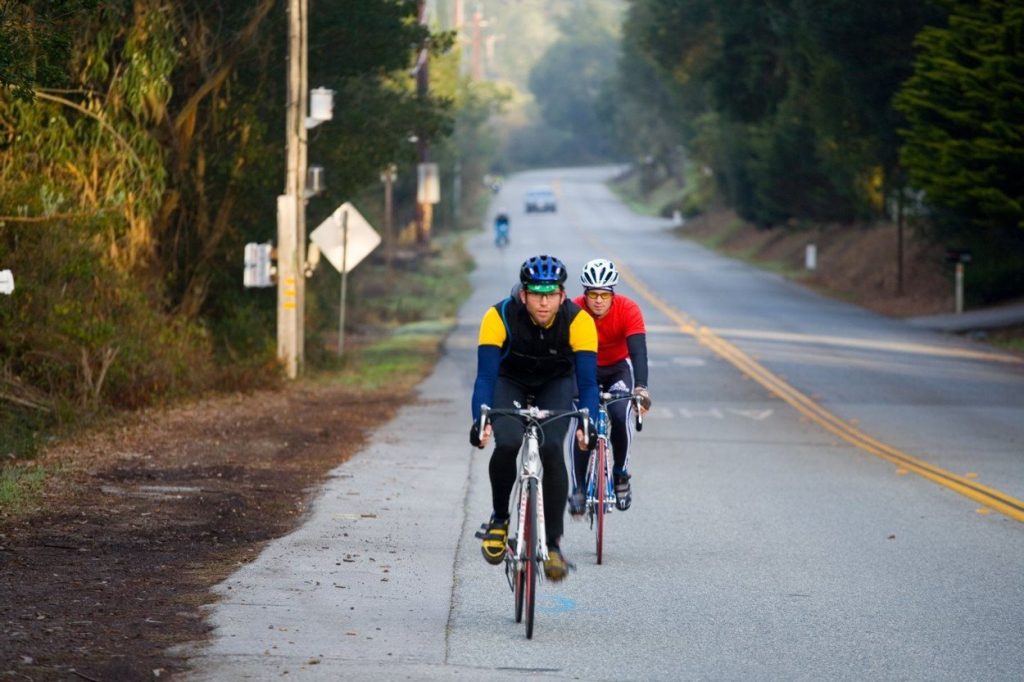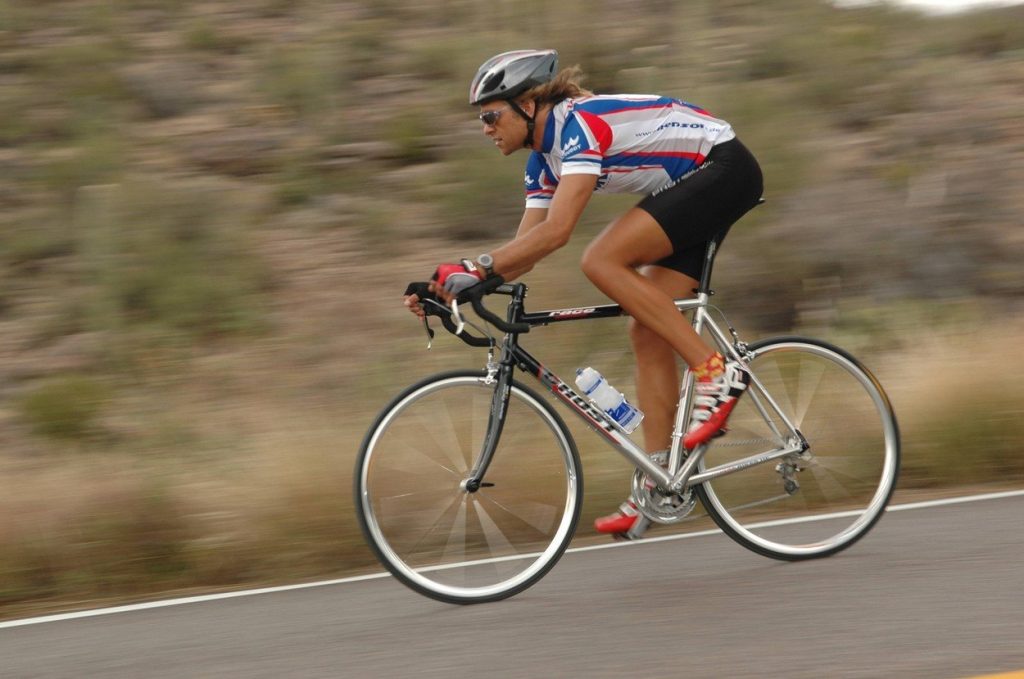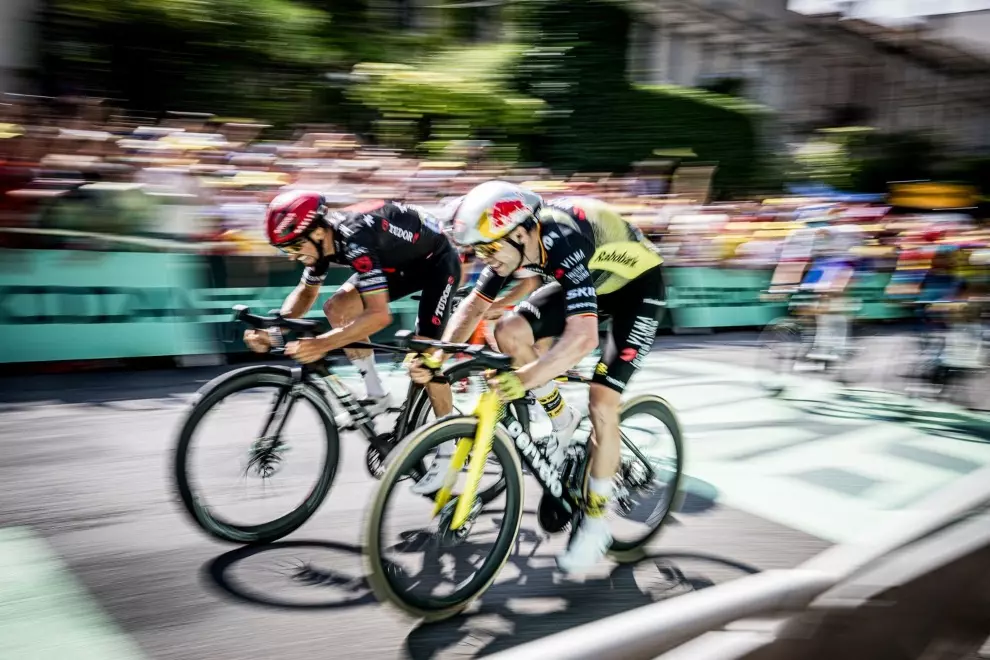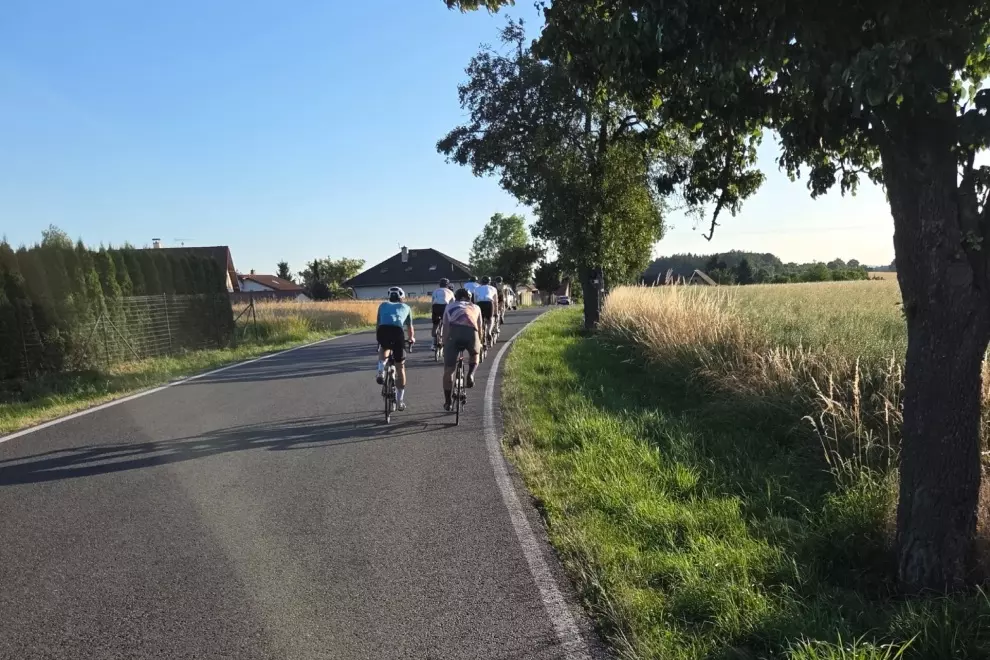Motivation and encouragement
Behind every decision, there should be a good reason. No matter if you feel overweight or you’ve just found an attractive a girl from the local cycling club, any kind of motivation will help you to stay determined. Cycling must bring you joy and excitement, without that, you’ll end sooner or later.

Plan and patience
You can be lucky and excel in an amateur darts match even without training, however, you’d only hardly make 100 km right after getting up from the couch. During the first few weeks, you’ll need to improve both your technique and endurance step by step. In theory, you could do 100 km quite easily. With the average speed of 20 km/h – which is actually nothing extraordinary – you’d achieve your goal in only five hours. Even though this sounds much better than sitting in a dental chair for only five minutes, in the end, the result would be equally treacherous, because cycling for more than one hour requires your body to be really accustomed to the sport. Even the tiniest and most hidden parts of your body will be sore after two hours. The third hour will be like hell on Earth, not to mention that you might cause serious problems to your locomotor system. Go step by step and add no more than 10 km every week you if you’re resolved to cycle more than the last time. This way, you can organise your first 100 km in just a 10-week schedule, which is actually a great summer season outlook.
A proper bike
With an inferior bike, you will always hold back, making excuses about wrong equipment. A good-looking bike will encourage you to ride more often, because with all the money you spent on it, you can’t just leave it in the cellar. However, this is just one part of the story. What’s more important for your performance is the right set-up. Ask the staff in your bike shop to make you a perfect set-up on your bike, so it suits your body proportions. Only a well-prepared bike will allow you to take advantage of your physical potential. Also pay attention to the pedal and shoes set-up, as wrongly adjusted cycling cleats might lead to serious knee or ankle problems and cause terrible pain that might turn chronic.

Food and water
Even strong riders might bonk when they forget to eat and drink properly. Especially in the beginning, supplying energy while cycling is not that crucial, as you normally spend up to two hours in the saddle. After a couple of weeks, however, when your endurance increases, you may feel ready to attack your next distance limit. Staying longer on the bike could surprise you with sudden fatigue caused by lack of energy. Ask more experienced cyclists about what is appropriate to eat while riding. Here’s some useful advice on when to eat: have a snack right at the moment when food comes to your mind. When you start feeling really hungry, it’s already too late. Concerning drinking, you should drink regularly even if you don’t feel thirsty. Watch professional cyclists – they constantly drink such amounts none of your pub mates could ever handle. That way you can make it to your first 100 km without ending up in the emergency room.
Time for recovery after each ride
Since you’re not participating in the Tour de France, there’s no need to undergo the cycling torture day by day. After each step, have a rest. When you reach the new limit – like 60 km for example – enjoy it and indulge yourself with time for recovery. Cycling is extremely addictive, so don’t be afraid that one day off saddle might make you a couch potato again.
Support by your relatives

Cycling is time-demanding. You can play squash or take a yoga lesson for one hour after work, but you can never cover 100 km in two hours. Not even in three. In order to get fit enough for such enormous performance, you will have to train for many days, every time for several hours. Get ready for uncomfortable questions like “Honey (or daddy), will you spend time with me this Saturday?” To prevent a family disaster, try to find a training schedule that will not collide with your family life. You can cycle every day before you go to work, or even better, you can cycle to and from work. Riding up to 40 km twice a week will make your body ready for longer distances. Forget about Friday night pub, wake up early on Saturday and try to ride 60 km before your girlfriend makes breakfast. Without understanding and support from your loved ones, however, you will never accomplish the first 100 km mission.
The right people
Although cycling is an individual sport, riding alone is no fun. Besides, cycling in a group is way easier because of the aerodynamic drag. Experienced cyclists will understand that you are just in your beginnings and if they’re the right mates, they will not want you to lead the group against the wind. Instead, you will enjoy the advantage of riding in a peloton before you advance to the higher level and will have more strength to take the lead for some time, too. Riding in a group requires significantly less power, so you will be able to go on much longer trips. Your first 100 km will come soon.




